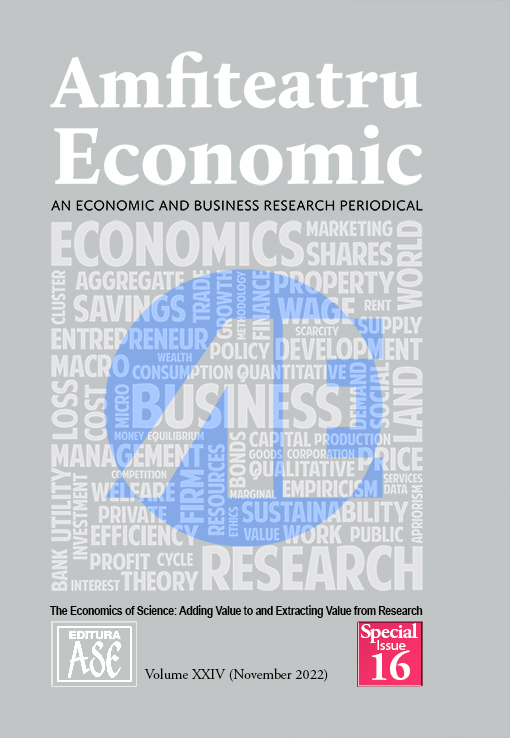Government Support of Science and the Impact of the Crisis: The Case of the EU Countries
Government Support of Science and the Impact of the Crisis: The Case of the EU Countries
Author(s): Michal Tvrdoň, Tomas VernerSubject(s): Business Economy / Management, Governance, Government/Political systems, EU-Approach / EU-Accession / EU-Development, Public Finances
Published by: EDITURA ASE
Keywords: government R&D expenditure; business cycle; recession; EU; panel data;
Summary/Abstract: The paper investigates government R&D spending during the business cycle. When analyzing this expenditure, it is important to mention two opposing aspects: on the one hand, government spending on R&D can be seen as a stimulus measure for the government to mitigate the effects of the recession on the economy, – governments can decide to increase public spending on R&D. However, on the other hand, the recession reduces public budget revenues and prompts governments to reduce public spending, which very often negatively affects R&D spending. Using panel data from 22 European Union countries for the period 2005 to 2019, we examine how government R&D expenditure varies over the business cycle. Four estimates were performed in which explanatory variables were gradually added to the model (OLS approach). The GMM approach includes all the variables at once. The coefficient for government R&D expenditure is positive, high, and remains stable. This implies that expenditure changes only gradually. The estimates give us evidence regarding the pro-cyclical effect on government R&D expenditure and the Keynesian approach to economic policy.
Journal: Amfiteatru Economic
- Issue Year: 24/2022
- Issue No: SI16
- Page Range: 989-1000
- Page Count: 12
- Language: English

